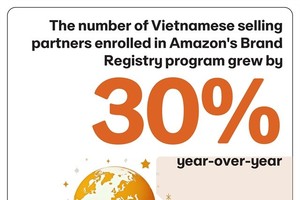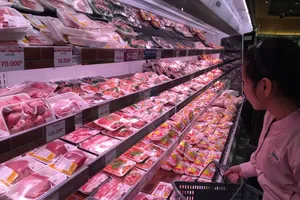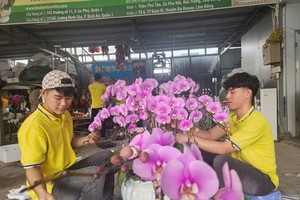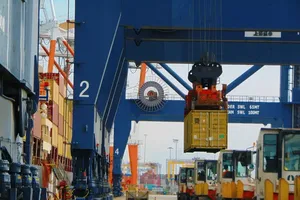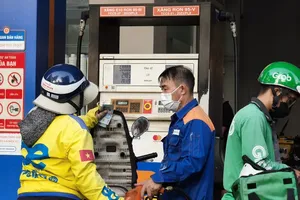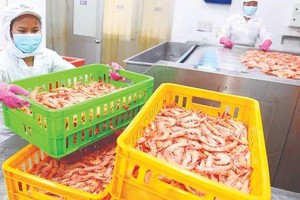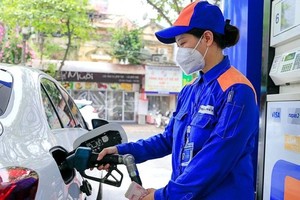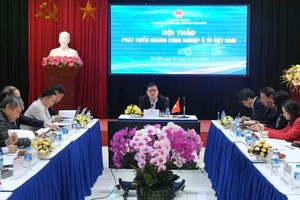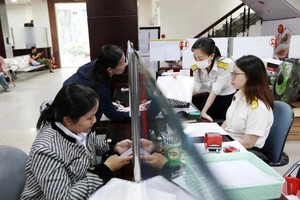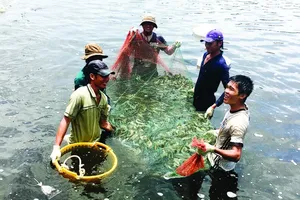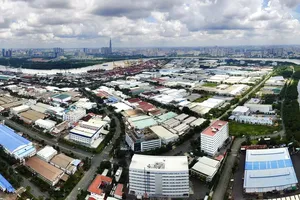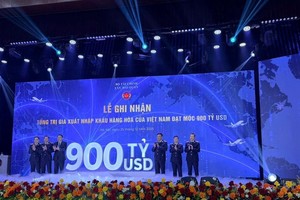“Made in Vietnam” goods are beginning to give stiff competition to Thai and Chinese products across many Southeast Asian countries.
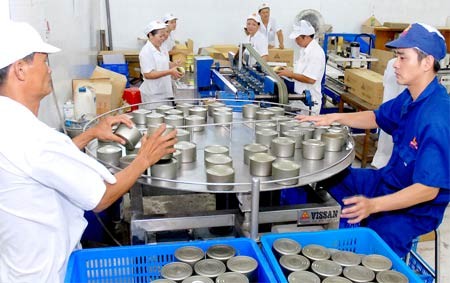
Consumers are realizing the quality of Vietnamese goods at trade and investment promotion conferences held in India, Myanmar and Cambodia.
Vietnamese products exported to member countries of the Association of Southeast Asian Nations (ASEAN) have gradually improved.
Previously, Vietnam exported mainly raw oil, rice, processed seafood and agricultural products. Now the country is exporting industrial products like machines, equipment, spare parts, vehicles, medicines, processed foods (especially instant noodles), apparels and household commodities.
In order to boost Vietnamese exports to ASEAN countries, the Ministry of Industry and Trade has developed strategic plans for exports until 2015 with an orientation growth up to 2020.
Vietnamese goods overtaking Cambodian market
At the 5-day Vietnam-Cambodia Trade and Service Fair 2011 in Phnom Penh in Cambodia in early April, nearly 300 stalls selling ten categories of goods made by 150 Vietnamese enterprises were sold out within the first two days of the fair.
Cambodians made a beeline to buy Vietnamese-made goods. They did not bother to check the brand name or bargain; they just bought the products outright because they were well-known Vietnamese brands like Vinamilk, Vissan and Kinh Do, which are already familiar names.
At a market in Phnom Penh, most of the Vietnamese made goods are clothes, footwear and instant noodles.
Prices of Vietnamese made goods in Cambodia are 20-25 percent higher than in Ho Chi Minh City. Vietnamese products can hence compete with Thai and Chinese products at such price ranges in Cambodia.
The Cambodian people have shown more interest in Vietnamese goods because of their quality. Vietnamese goods cover one third of the total commodities in grocery stores.
Van Duc Muoi, general director of Vissan, a leading food processing company in Vietnam, said Cambodia became Vietnam’s major export market two years ago.
The company now plans to spend US$1 million on promoting Vissan products in Cambodia in 2011.
Ming Seng, director of Vietnam Supermarket in Cambodia, said Vietnam, Thailand and China are dominating the Cambodian market. Vietnamese goods have recently taken up second position amongst the three countries.
Vietnam-Cambodia trade relations have developed stronger since 2000 with the bilateral trade turnover rapidly increasing to an average 30 percent per annum.
According to the Cambodian Trade Ministry, Vietnam leads the list of countries exporting the most commodities to Cambodia.
The bilateral trade turnover reached US$1.8 billion in 2010, an increase of 35.6 percent from 2009. Vietnam exported US$1.5 billion worth of goods to Cambodia in 2011, a year-on-year rise of 34.5 percent.
Vietnam has seen a trade surplus of about US$1.3 billion in Cambodia amongst all the ASEAN countries, equal to 83 percent of Vietnam’s total export value.
The two countries’ trade relations do not stop at trading of goods alone but have developed into investments, joint ventures and cooperation ties.
Developing trade with Myanmar
Like Cambodia, Myanmar is Vietnam’s emerging export market attracting Vietnamese enterprises.
Vietnam and Myanmar share a sound political relationship and the Myanmar Government is giving priority to trade relations with Vietnam, which will certainly benefit the economic development of both the countries.
Chu Cong Phung, Vietnamese Ambassador to Myanmar, said the Myanmar economy has faced many difficulties. Local production has met only 10 percent of domestic consumption demand, 90 percent of the country’s consumption and industrial commodities have been imported.
Ambassador Phung said Myanmar people scrambled for Vietnamese goods at the Vietnamese goods fair held in Myanmar in October 2010. Myanmar shoppers have been very satisfied with the quality, design and price of Vietnamese goods, he added.
Win Myint, chairman of the Union of Myanmar Federation of Chambers of Commerce and Industry, has called upon Vietnamese enterprises to invest more into the country and expand their businesses with Myanmar partners.
He said that the good political relations between the two countries would make both Vietnam and Myanmar into strong economic partners in the future.
| According to the Vietnamese Ministry of Industry and Trade, Vietnam saw a strong recovery in exports to the Indonesian market and a sustainable development in exports to Cambodian and Myanmar markets in 2010. Vietnamese exports to Indonesia rose by 91.6 percent and exports to Brunei, Myanmar and Cambodia increased by 84, 47 and 35.2 percent respectively. East Timor is a new emerging market and Vietnam’s total export turnover to East Timor reached US$53 million in 2010, US$3 million more than the country’s total export turnover to Myanmar. |


